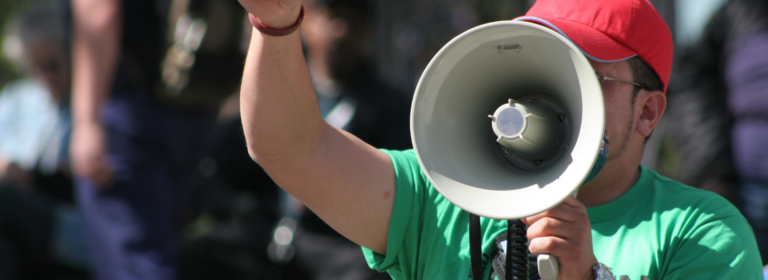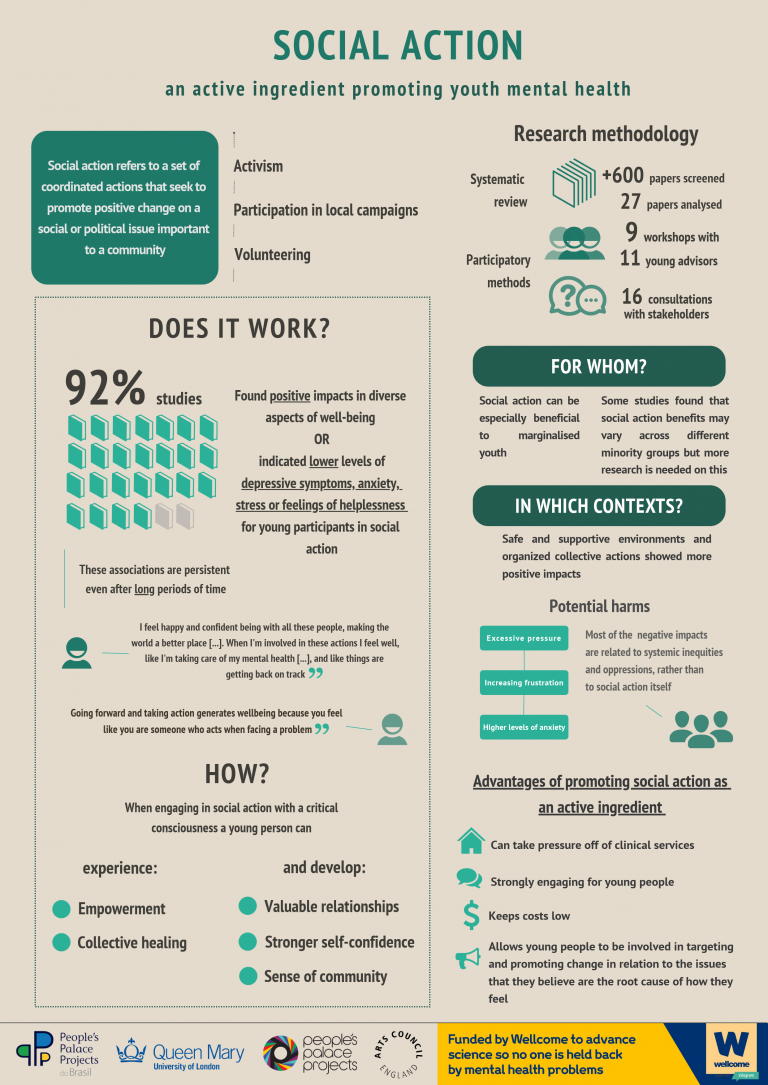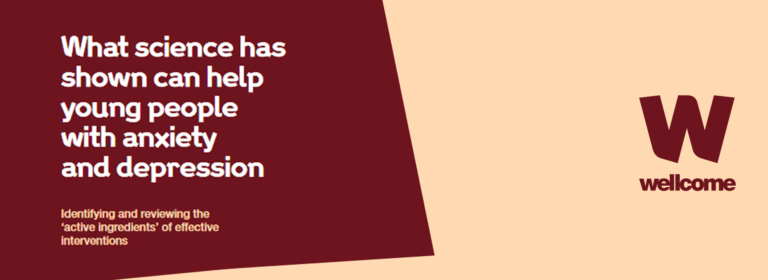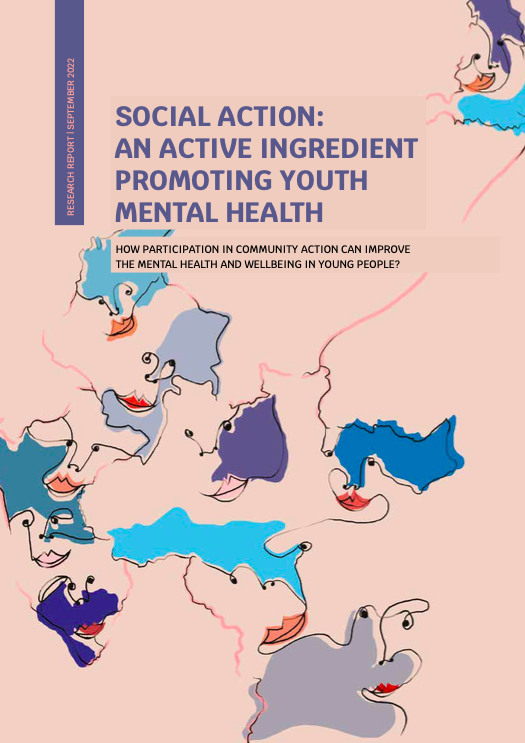Wellcome: How Social Action Drives Youth Wellbeing
Improving mental health and well-being in young people through engagement in social and political collective activism.

Project Overview
From ‘being an activist’ to ‘volunteering’ and ‘participating in social movements’, young people aged 14–24 around the world engage in social action to make a difference in their community.
This project, commissioned by the Wellcome Trust as part of the Active Ingredient series, set out to explore the impact of this collective action on young people’s mental health to better understand how this kind of group involvement might be used as a tool for support or recovery.
Methodology
The project used a broad definition of social action, discussed with young people and stakeholders, including terms such as activism, community action, volunteering and civic engagement.
The team consisted of three researchers and two young co-researchers from Brazil and the UK, with methods including literature reviews and interviews or workshops with young people in social action programmes and those who work closely with them.
We also ran online workshops with 11 young advisors from Latin America (Brazil, Colombia and Peru) and the UK, and consulted with 16 stakeholders from Brazil, Peru, Argentina, the UK, and the US.
Findings
The primary effect of social action on well-being in this demographic is in helping young people to develop a sense of community, empowerment, interpersonal connections and a space for healing. Proving particularly beneficial for marginalised youth as a way to increase their sense of self-efficacy and build skills to tackle the systemic inequities that might be the cause of their mental distress.
Beyond this, young people were able to learn new skills, create important relationships, and come to understand individual experiences of trauma as the result of collective processes of marginalisation. They reported feeling more comfortable in their identity and more satisfied with their lives, as well as better psychological well-being overall, which was supported by the literature and longitudinal studies.
Benefits of participation tended to align with contexts where young people felt safe, such as ‘low-risk’ social action projects like volunteering, and within organisations that promote social action in a supportive environment. And for youth advisors and stakeholders, we found that engaging in social action organisations, rather than in solitary activities, may contribute more significantly to supporting and improving mental health.

For more information on the Wellcome Trust’s research on ‘active ingredients’ of effective interventions for youth anxiety and depression click here
Insights from Young People?
Young people involved in the study stressed the benefits of social action on their own emotional health, with one saying outright that they were ‘feeling less anxious and less hopeless’ since being active in their programme (K.S, UK young advisor).
There were also participants who spoke to collective experiences. One workshop participant (R.M, Latam young advisor) noted a reciprocal exchange between ‘the one doing the social action and the community impacted by what is being done.’
For some of the youth advisors, social action is more than a choice, it’s a necessity related to social inequities and processes of oppression and marginalisation. This can generate frustration and even mental distress at times, as one youth advisor explained:
C.V, Latam young advisor
Youth advisors also highlighted that being paid to participate in social action could be more beneficial to their wellbeing:
E.L, UK young advisor
Recommendations
While social action is highly engaging and empowering for young people, and can take pressure off clinical services, engaging in social action is not always a immediate way to improve wellbeing in this demographic. Where a lack of appropriate support is available, young people may be exposed to challenging situations and emotional struggles that they would otherwise have not encountered (although negative impacts reported during our study were mainly related to systemic inequities rather than to social action itself).
Social action programmes should ensure a safe and welcoming environment, with well-prepared facilitators or mentors who are capable of supporting youth mental health needs. There should be a focus on training current staff and fees for young people’s time should be endorsed.
Future research could investigate the impacts of social action on mental health by using intervention studies that could help to better track mental health across a social action programme. And more research is needed to understand the full implications of the benefits of collective action for marginalised youth.
Conducting this sort of study is key to advancing knowledge on the subject and is particularly important in the UK where social prescribing efforts are growing. Low- and Middle- Income Countries, where the population is young and resources for proper treatment are scarce, can also benefit from research on this topic.








